Director: Kim Yong-Hwa
Cast: Cha Tae-hyun, Ha Jung-Woo, Ju Ji-Hoon, Kim Hyang-Gi, Kim Dong-Wook, Do Kyung-Soo, Lee Joon-Hyuk, Lee Jung-Jae, Ma Dong-Seok, Jung Hae-Kyun
Running Time: 139 min.
By Paul Bramhall
It’s been a while since Korea delivered a full-blown fantasy spectacle, with perhaps the last time being Jo Dong-oh’s The Restless, way back in 2006. However with the current trend of webtoon (online comic) adaptations that are dominating both Korean dramas and movies, it’s perhaps not surprising that the time is rife for the genre to make a return to the countries cinema screens. Along with the Gods: The Two Worlds has taken the same approach Japan opted for with manga adaptations like Assassination Classroom and Parasyte, filming two instalments back-to-back, a first for Korea. It’s a gamble for sure, with no production before (or I’d daresay after) relying so much on visual effects as its selling point, to the tune of roughly $36 million.
However the Korean peninsula has come a long way in its CGI capabilities in a short period of time. As recently as Bong Joon-ho’s The Host, the creation of the titular monster was offshored to San Francisco based visual effects outfit The Orphanage, rather than done locally. However director Kim Yong-hwa had lofty ambitions, and for his 2012 feature Mr. Go, a Korea-China co-production about a baseball playing gorilla (don’t ask) that failed to set the box office alight, he founded the visual effects company Dexter. While Mr. Go may have been a misfire, Dexter has become the go-to effects house in Asia, with the likes of Tsui Hark (for The Taking of Tiger Mountain) and Soi Cheang (for The Monkey King 2) becoming regular clients, both of which heralded award winning results.
Without doubt AWTG:TTW (as I’ll refer to it from here on in) wouldn’t exist without Dexter, and while Yong-hwa has sat in the directors chair before for the likes of Take Off and 200 Pounds Beauty, this can be considered his sophomore effort with the title of Dexter Founder on his resume. The original webtoon by Joo Ho-min ran from 2010 – 2012, and in many ways its cinematic incarnation represents somewhat of a family friendly version of Chang Cheh’s Heaven and Hell, although thankfully Yong-hwa’s version didn’t take 5 years to complete. The story focuses on a firefighter that dies in the line of duty, played by My Sassy Girl lead Cha Tae-hyun, who is promptly met by a trio of guardians whose job it is to guide him through seven trials, presided over by various Gods, which he has to pass in order to be reincarnated.
Fail any one of them, and he’s damned to an eternity in hell, custom made to whichever trial is being judged. Thankfully the trio of guardians are played by the ever cool Ha Jung-woo (last seen on the big screen in Tunnel), ably assisted by Joo Ji-hoon (Asura: City of Madness) and new guardian on the block Kim Hyang-gi (A Werewolf Boy). When viewing a production like AWTG:TTW, it’s important to remember that this is Korean filmmaking at its most commercial (re: crowd pleasing), designed as a bring the whole family along blockbuster in the same vein as Ode to My Father. Its intention is to make us laugh, gasp, and in true Korean style, ensure we have a box of tissues close to hand. While such productions aim to appeal to as wider an audience as possible, there’s a distinct feeling with Yong-hwa’s latest that the biggest demographic they’re going for is teenagers.
The afterlife is given plenty of quirky design traits that sometimes fall just the wrong side of juvenile. The entrance is presented as a turnstile, which you have to put a valid ticket through to enter, and perhaps most bizarrely, one of the shortcuts between trials takes the form of a theme park styled log flume. I was half expecting a staff member to be selling them a photo at the end of it. Pop culture references are also thrown about liberally, regardless of if they really fit the scenario, with mentions of The Avengers and Saving Private Ryan drawing more of a grimace than the desired laugh. However even those pale in comparison to the more blatantly preachy elements of the script, such as a line Ji-hoon is lumbered with when discussing examples of ‘indirect murder’, which has him declare “So don’t post mean comments online hastily.” Ok, we won’t!
While some elements of AWTG:TTW are decidedly Korean, such as the whole finale revolving around the trail of filial piety, a notion deep rooted in the countries Confucian society, the message it delivers is a universal one. Similarly the frequent onscreen text, telling us which realm is currently being trudged through, provide plenty of cultural pointers. The text can also never be accused of being dull, with references to the likes of Murder Hell and the Mirror of Karma ensuring a suitably dramatic tone. While neither the text nor visuals are able to completely immerse the viewer in the world being portrayed, it’s also worth noting that there are no glaring moments of poorly rendered green screen. The issue is more rooted in the fact it’s never clearly established how the quartet are travelling from realm to realm, they just kind of arrive there once the previous trial is done with.
Despite these less than subtle elements of AWTG:TTW, at almost 140 minutes long, at some point the unabashed heart on its sleeve nature of it all gets under your skin. Amongst the colourful visuals and elaborate costume design, there’s a story which keeps a few surprisingly dark revelations up its sleeve. With an opening scene which has Tae-hyun’s fireman smashing through a high level window of an ablaze building, sheltering a child in his arms, the time he spends plummeting through the air is literally all we see of him alive. His honourable death grants him plenty of goodwill with the guardians, who feel assured his journey through the trials should be a painless one, and considering we’re 2 trials down before the half hour mark, initially it seems they may be right. But as the plot progresses, so details of his life slowly begin to reveal a more tragic fate.
The appearance of a vengeful spirit from the world of the living puts a significant spanner in the works for Tae-hyun having a smooth journey, and it’s this revelation which comes to play a crucial part in keeping AWTG:TTW an engaging experience, rather than the trials themselves. Similar to the world skewering of Inception, whatever havoc the spirit wreaks in the land of the living has a ripple effect in the afterlife, resulting in our quartet being forced to outrun avalanches, or fend off legions of hell ghouls. The latter allows for some eye catching fantasy action sequences, as Jung-woo gets to unleash with a glowing sword, and Ji-hoon wields two oversized blades, which have the ability to connect and form a double bladed staff. My favorite action sequences though belonged to Jung-woo’s perusal of the spirit in the real world, which have him flying through the Seoul cityscape, sword in hand, as the spirit utilises power lines to travel at incredible speeds.
Another element that works in AWTG:TTW’s favour is its all-star cast. For fans of Korean cinema, the sheer amount of talent in front of the camera makes for enjoyable viewing. From Oh Dal-soo (Tunnel) and Im Won-hee (The Advocate: A Missing Body), who play a pair of judges in the afterlife, to the likes of Kim Su-an (Coin Locker Girl), Kim Hae-sook (The Handmaiden), Lee Kyung-yung (The Prison), Kim Ha-neul (Misbehavior), and Lee Jung-jae (Assassination), all of whom play various Gods. It could be argued that there’s never been a more fitting production for Jung-jae to showcase his booming voice than this one, in which he plays the King of the Underworld. Even actors like Yoo Joon-sang (The Target) and Ma Dong-seok (Train to Busan) show up as cameo appearances, the latter of whom promises to have a significantly larger role in the second instalment.
AWTG:TTW wraps proceedings up surprisingly neatly considering we know another round is on the way. Far from ending on a dramatic cliff-hanger, Tae-hyun’s journey appears to come to its conclusion, implying that whatever is coming next will turn its focus to a different character. While Yong-hwa is painting with incredibly broad brushstrokes in AWTG:TTW, both literally onscreen and with its tonal shifts, the ‘something for everyone’ appeal it’s clearly aiming for is largely achieved. While the more serious filmgoer will rightfully turn their nose up at such an approach to filmmaking, as a commercial blockbuster credit can be given for striking that precarious balance of knowing when to dial it up, and when to reign it in. As for the question of if I had to reach for that box of tissues, well, as the expression goes – some questions are best left unanswered.
Paul Bramhall’s Rating: 7/10

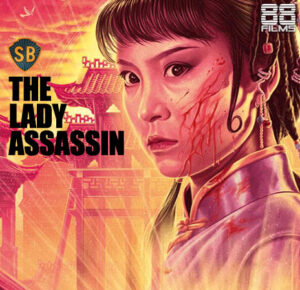
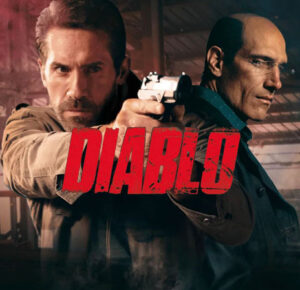

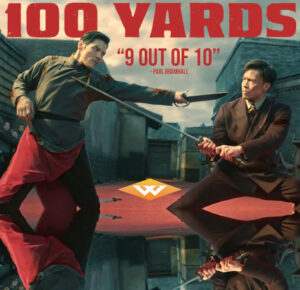
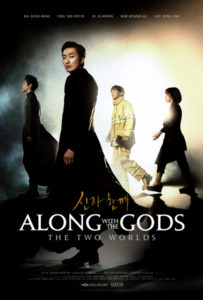
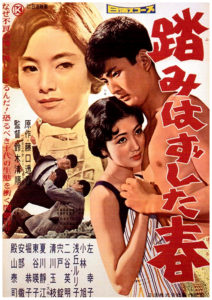


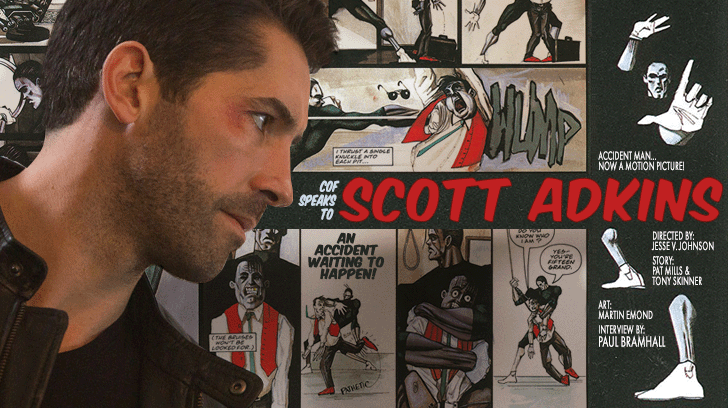 Scott Adkins is a name that likely needs no introduction to fans of action cinema. After getting his start in Hong Kong featuring alongside the likes of Jackie Chan and Stephen Tung Wai, Adkins really found his footing once he collaborated with director Isaac Florentine on Special Forces in 2003. It was a partnership which led to him taking on the iconic character of Uri Boyka, in the 2006 unrelated sequel Undisputed 2: Last Man Standing, a character which for many of his fans has become inseparable from the man himself. While those same fans are constantly clamoring for more Boyka action (and got some, in both 2010 and 2016), the British star has always harbored a desire to bring one of his favorite comic books,
Scott Adkins is a name that likely needs no introduction to fans of action cinema. After getting his start in Hong Kong featuring alongside the likes of Jackie Chan and Stephen Tung Wai, Adkins really found his footing once he collaborated with director Isaac Florentine on Special Forces in 2003. It was a partnership which led to him taking on the iconic character of Uri Boyka, in the 2006 unrelated sequel Undisputed 2: Last Man Standing, a character which for many of his fans has become inseparable from the man himself. While those same fans are constantly clamoring for more Boyka action (and got some, in both 2010 and 2016), the British star has always harbored a desire to bring one of his favorite comic books, 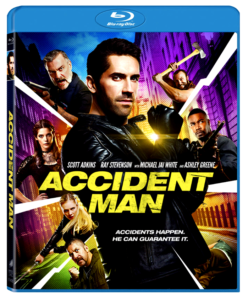
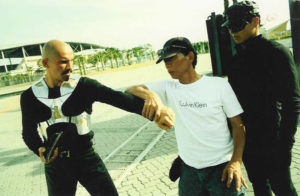
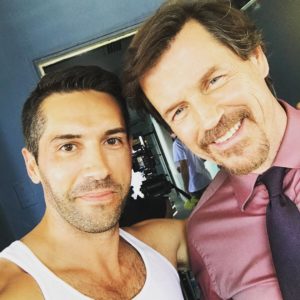
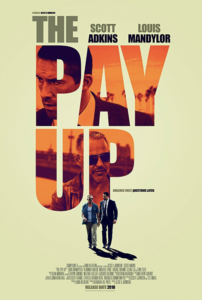
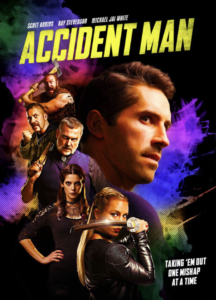
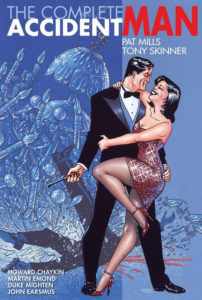
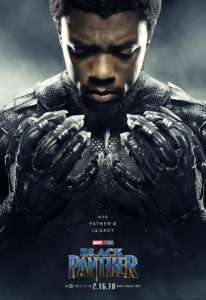

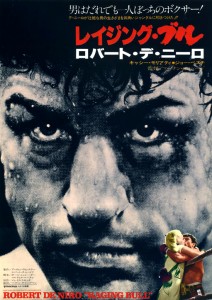


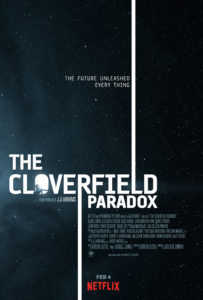
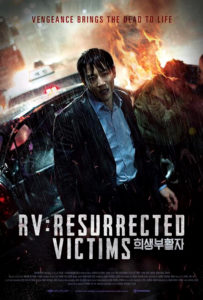
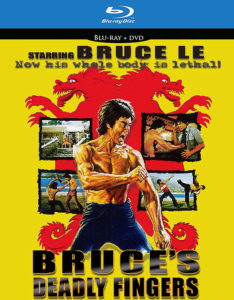

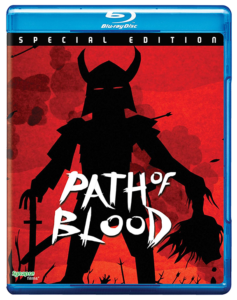




2 Comments